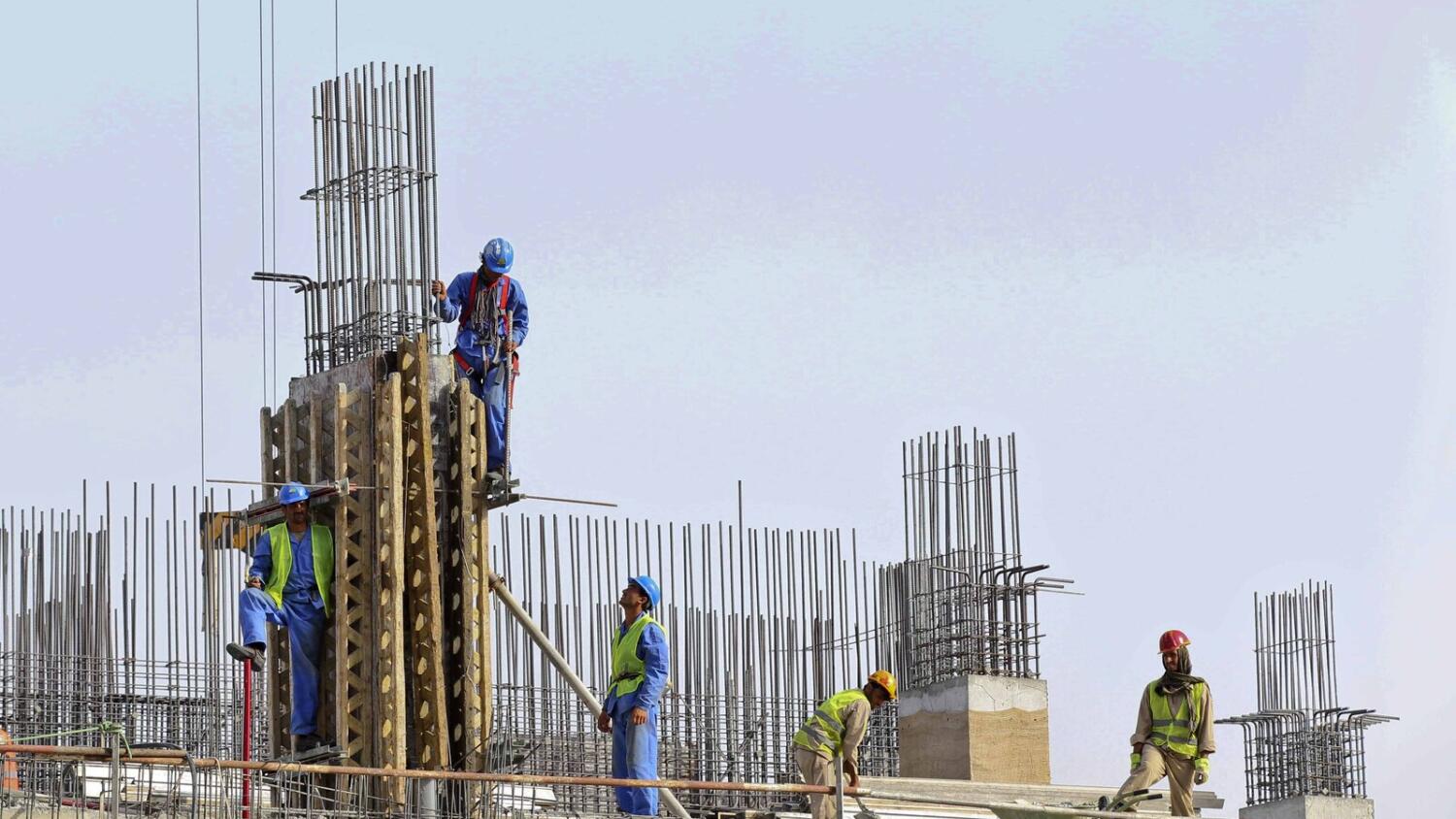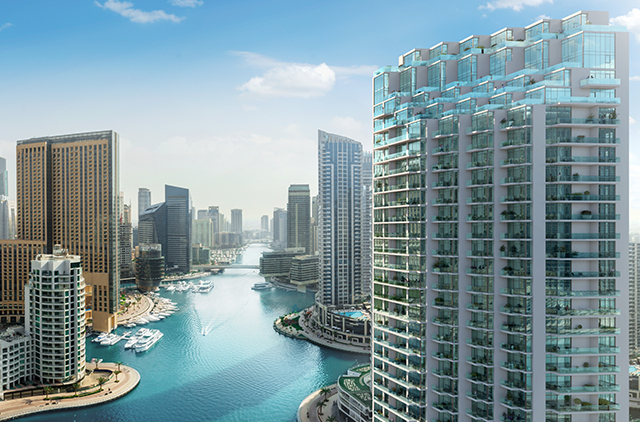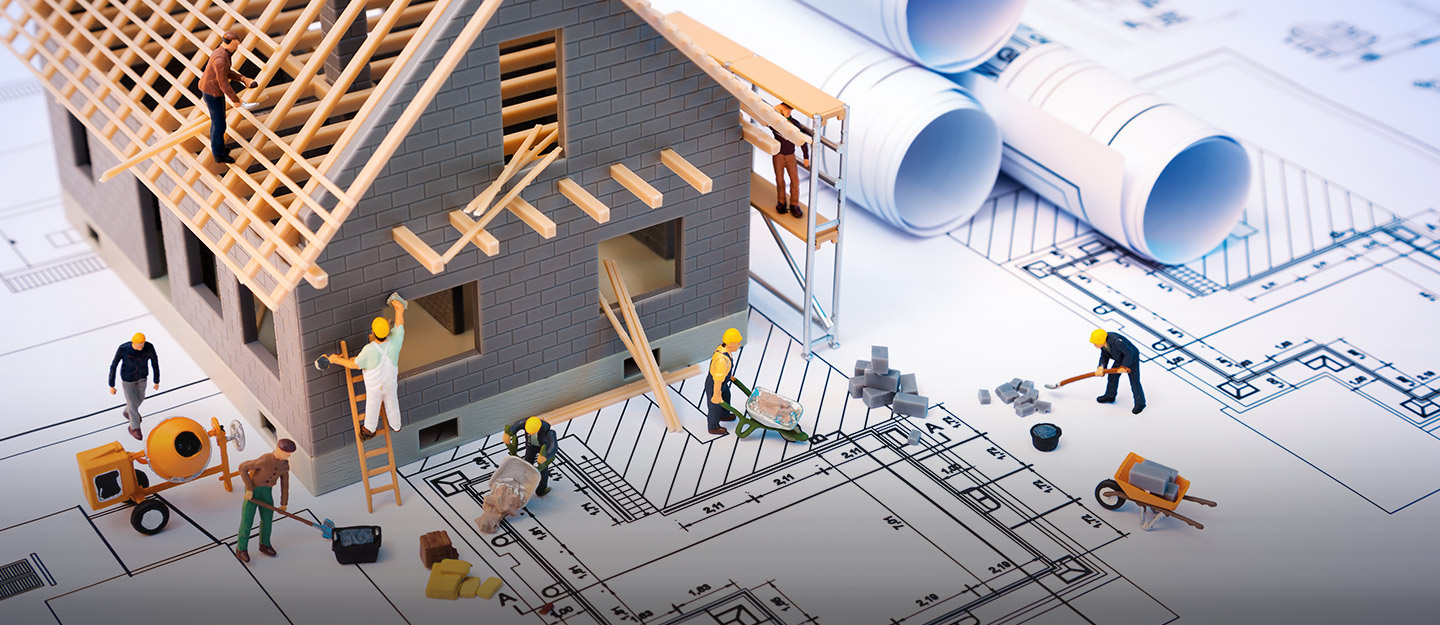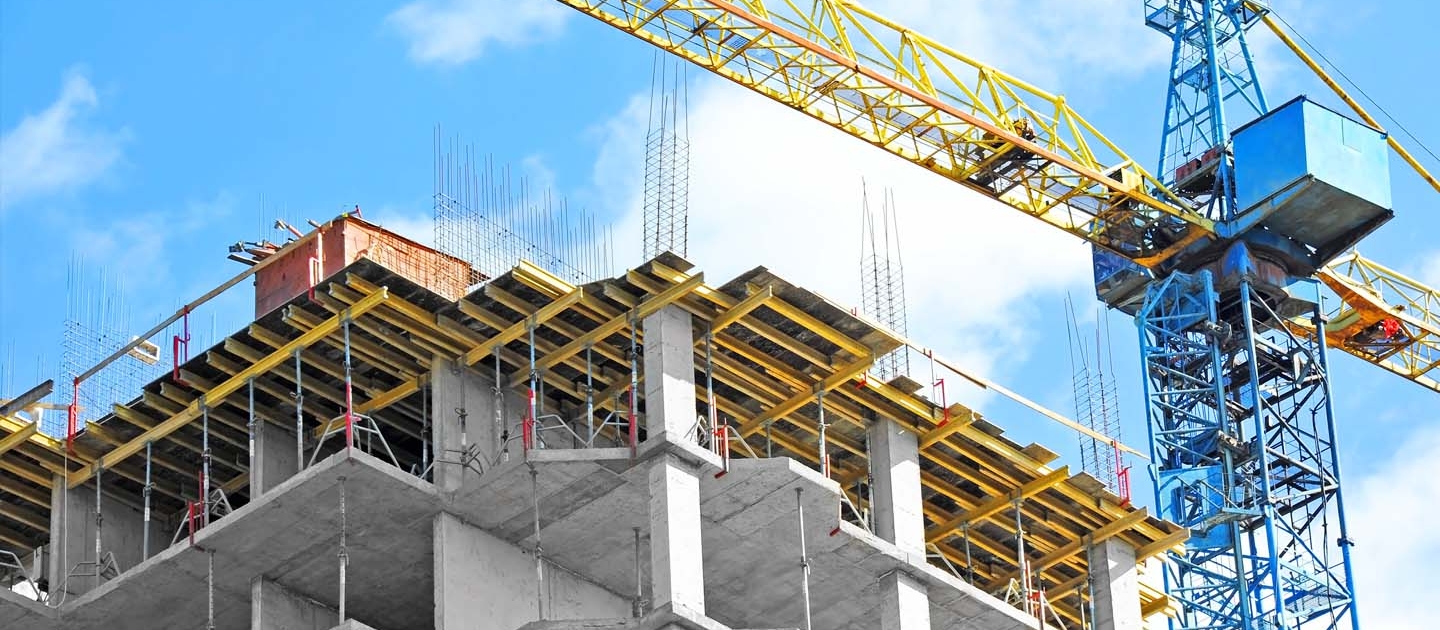With its immense determination, Dubai has established itself as a firm global leader in terms of innovation. As a hyper-connected business hub connecting the West and East, it offers great career opportunities to many talented graduates from across the world. Thus, the city has the highest rental yield of many other countries. As a result, most people are now investing in Dubai’s real estate, making it the world’s prime property hotspot. Therefore, with increasing demand, property prices have become a major hindrance for investors. And as a consequence, investors are now looking for buying off-plan property in Dubai because it is more affordable and provides a strong ROI (Return on Investment).

What is an off-plan property in Dubai
An off-plan property is an unconstructed property purchased directly from a developer. It’s a property that is yet to be built or in some cases is in the early stages of being built.
In order to purchase this type of property buyers rely on brochures and other marketing material to learn about the project and the exact property they are buying. Purchase is usually made with a 10-20% down payment and the signing of the SPA (Sales Purchase Agreement). Depending on which developer the rest of the payments made can and do vary but are usually linked to construction.
Costs of buying an off-plan property
Much like buying a ready property, there are certain fees associated with buying an off-plan property. The following table will outline all the main fixed costs associated.
- Property Registration Fee = 4% Payable To Dubai Land Department
- Oqood Registration = AED 3,000 Payable To Dubai Land Department
Please note that whilst all the fees and charges do need to be paid, this does not always mean that its the buyer who is the one that ends up paying. As a way of incentivizing buyers, a large number of developers today are paying half or in some cases the entire Dubai Land Department Registration fee on behalf of buyers. If paid in full this equals a 4% saving which when combined with the 2% saving on agency fees equals a handy 6% saving.

The Legal Process of Buying an Off-Plan Property in Dubai
Like every other business, real estate transactions have their own set of rules and regulations that must be followed to ensure a seamless and legal purchase. When it comes to off-plan properties, there are certain additional steps that need to be taken in order to safeguard your investment. Therefore, the whole process requires a lot of deliberation and investigation.
Investing in off-plan property is followed by just one obvious selling statement: you are buying a property that does not exist yet. You need to have a certain level of trust for the developer as you will be investing your money in their project with an expected return on investment (ROI) only after the completion of the construction.
In off-plan transactions, there is no third-party guarantee like in the case of ready properties, so an escrow account is set up by the developer to ensure the buyers that their money is protected and will only be released when the project is completed as per the agreed schedule.

In order to make a sound decision, you must do your homework and study various aspects of the off-plan market in Dubai before you choose to invest. This includes:
- Analyzing the long-term market trends
- Assessing the risks involved
- Doing a background check on the developer
- Calculating the estimated ROI
- Selecting the right location
Laws & investors’ rights in buying Dubai off-plan properties
Question: I am planning to invest in an off-plan property in Dubai. What happens if the developer fails to deliver the property? What are my rights in this regard?
Response: In Dubai, any off-plan property sold by a developer needs to be registered in the Interim Real Property Register maintained by the Dubai Land Department (DLD). This is in accordance with Article 3(1) of the Dubai Interim Real Property Register Regulations.
Further, Article 4 (1) of the Dubai Interim Real Property Register Regulations states: “A master developer or sub-developer may not commence the implementation of a project or sell its units off-plan unless it takes possession of the land on which the project is to be constructed and obtains the necessary approvals from the competent entities in the emirate.
“In all events, the DLD must create an entry on the registry folio of the real property to denote it is being developed.”

Based on the aforementioned provision of law, once you find a suitable property, you may verify if the developer of the property has registered the project with the DLD. A developer may not enter into any sale contract with a purchaser until it obtains relevant approvals from the DLD. This is as mentioned in Article 10 of the Dubai Interim Real Property Register Regulations.
In case the developer fails to deliver the property you purchased in accordance with the terms of the Sale Purchase Agreement (SPA), you may request it to fulfil its obligations. If the developer does not comply, you may approach the DLD and file a complaint.
The DLD may attempt to settle the matter amicably between you and the developer. This is in accordance with Article 14 of the Executive Council Resolution No. 6 of 2010, which states: “Where any dispute arises between a developer and a purchaser, the DLD may undertake conciliatory efforts to preserve their contractual relationship and may propose any solutions it deems appropriate to achieve this objective. Where the developer and the purchaser reach an amicable settlement, that settlement shall be documented in a written agreement executed by the developer and the purchaser or their respective representatives. Upon approval of that agreement by the DLD, it shall become binding to both parties.”

The Real Estate Regulatory Agency of Dubai (Rera) may also cancel the project on technical grounds, if a developer does not fulfil conditions — such as failing to commence construction work without a valid reason; if the authority is satisfied that the developer has no genuine intention (good faith) to continue with the project; failure by the developer to implement the project due to gross negligence, etc. This is in accordance with Article 23 of the Executive Council Resolution No. 6 of 2010.
Further, a developer needs to refund all the payments made by a purchaser if the project is cancelled by the decision of Rera. This is in accordance with Article 11(b) of Dubai Amended Interim Real Property Registration Regulations of 2017.
In the event the developer does not refund the payments, then the Rera may take all necessary actions to preserve your right as a purchaser. This is in accordance with Article 27 of the Executive Council Resolution No. 6 of 2010, which states: “If the developer fails to refund the amounts owed to the purchasers within the period set forth in Article 26 (60 days) of this resolution, Rera must take all necessary actions to preserve the rights of purchasers including referring the matter to the competent judicial authorities.”

You as a purchaser may also approach the competent court in Dubai to seek termination of the SPA. This is in accordance with Article 20 of the Executive Council Resolution No. 6 of 2010. However, a developer may have protection under Article 21 of the Executive Council Resolution No. 6 of 2010 if the reasons for handing over of the property is delayed due to reasons beyond the control (force majeure) such as property taken over by authorities in the interest of the public; if authorities suspend the project for replanning purposes, etc.
Take note: A developer will have to refund all the payments made by a purchaser if the project is cancelled by a Rera decision
Como Residences by Nakheel, 03 May 2023
The Highest Tower on the Palm Jumeirah! Download Catalog Here.
FAQ About Off-Plan Property in Dubai
Advantages of buying off-plan property in Dubai
- Save Money – Buying an Off plan property allows investors to get a purchase price at the earliest and lowest possible price. It also allows buyers to choose the very best apartments in a particular development. This plays a big part in increasing the chances of gaining the maximum return on their investment.
- Sell Before Completion – Quite often investors can sell off their off-plan property prior to a project’s completion. Assuming the market has performed well and the project proved popular owners can often sell at a considerable profit.
- Lower up Front Costs – Payment plans for off plan property can and do vary from developer to developer. With some developers only requiring a 5% down payment and the rest linked to constructions the outlay required is relatively low.
- You Buy Brand New – As much as most of us hate to admit it, we all love something new. Whether it’s a new car or a brand-new property there is something rather special and satisfying about having something that has never been used before. This is exactly what you get with an off plan property that is not only new but if done right will feature the latest design, technology and lifestyle features, and amenities.
Risks in buying off-plan property
Nothing we do comes without risk and the same can be said for buying an off-plan property in Dubai. In this section we are going to look at some of the more significant risks of buying an off plan property in Dubai:
- Delayed Completion Time
- Change in Market Conditions
- Not getting what you expected
- Other Developments
Can foreigners buy a property in Dubai?
Yes, foreigners and nonresidents can buy property in Dubai.
Unlike many countries around the world, the Dubai property market is open to all. Whether you are from the UK or India there are no restrictions to you buying and owning a property in any of Dubai’s freehold areas.
What guarantee do I have that my development will be completed?
To help ensure an off-plan project is completed, RERA has introduced numerous measures which must be met by the developer. One of these stipulates that the developer must own 100 percent of the land belonging to the project. Along with this, the developer must either make a down payment of 20 percent as a bank guarantee, deposit 20 percent in an escrow account, or complete 20 percent of construction before selling off plan. Together with the above measures, RERA requests contractors to submit a 10 percent performance guarantee.
Along with these measures, it’s imperative buyers do their own research and look into developers they are considering buying from. We recommend looking at the developer’s track record as well as reputation.
When can I sell my off-plan property?
Generally speaking an off plan property can be sold once the buyer has repaid 30% of the property price.
Numerous measures have been put in place in order to ensure the Dubai market is a stable and secure market to invest in. One of these measures has a direct impact on buyers who look to sell their off plan property before completion. Dubai’s largest developer Emaar Properties now requires owners to have 30% of their off plan property paid off before it can be sold to a new owner. This figure of 30% does vary from developer to developer so it’s important to check with each developer.
Once the minim repayment threshold has been met the process of selling an off-plan property is very similar to selling a ready property. Buyers and sellers agree to price and terms, sign contracts and apply for NOC where the new buyer is registered with the developer and ultimately takes over all the outstanding payments once the transfer is complete. It is also worth noting that contrary to popular belief the new buyer is responsible for the 4% DLD Transfer Fee regardless of the fact this has already been paid by the first buyer.
What type of off-plan properties can I buy in Dubai?
There are a number of off plan property types available in Dubai. These typically fall into 3 categories which are apartments, villas, and townhouses. All of these have different characteristics as well as different advantages and potential disadvantages. Which one is the best option will depend purely on the buyer’s personal needs and wants and of course investment goals.
Can I finance an off plan property?
Getting a mortgage for an off plan property is definitely possible in most cases and almost always when it comes to the big developers in Dubai. Different lenders will set their own qualifying criteria however this is very similar to what would be applicable for a ready property.
It is worth noting that the maximum loan for an off plan property is 50% of the purchase price.
How to buy an off plan property at launch?
Buying a property at launch can be a little tricky, especially in ultra popular projects where there is more buyers than there are units.
To avoid disappointment it’s key to have an experienced and well-connected agent working on your behalf. He/She will have experience working with the developer and understand what the process looks like and what documents will need to be in order before the actual launch. Whilst there are never guarantees being prepared will go a long way in putting you in a great position to not only buy but buy the unit you really want.








Leave a Reply
Want to join the discussion?Feel free to contribute!